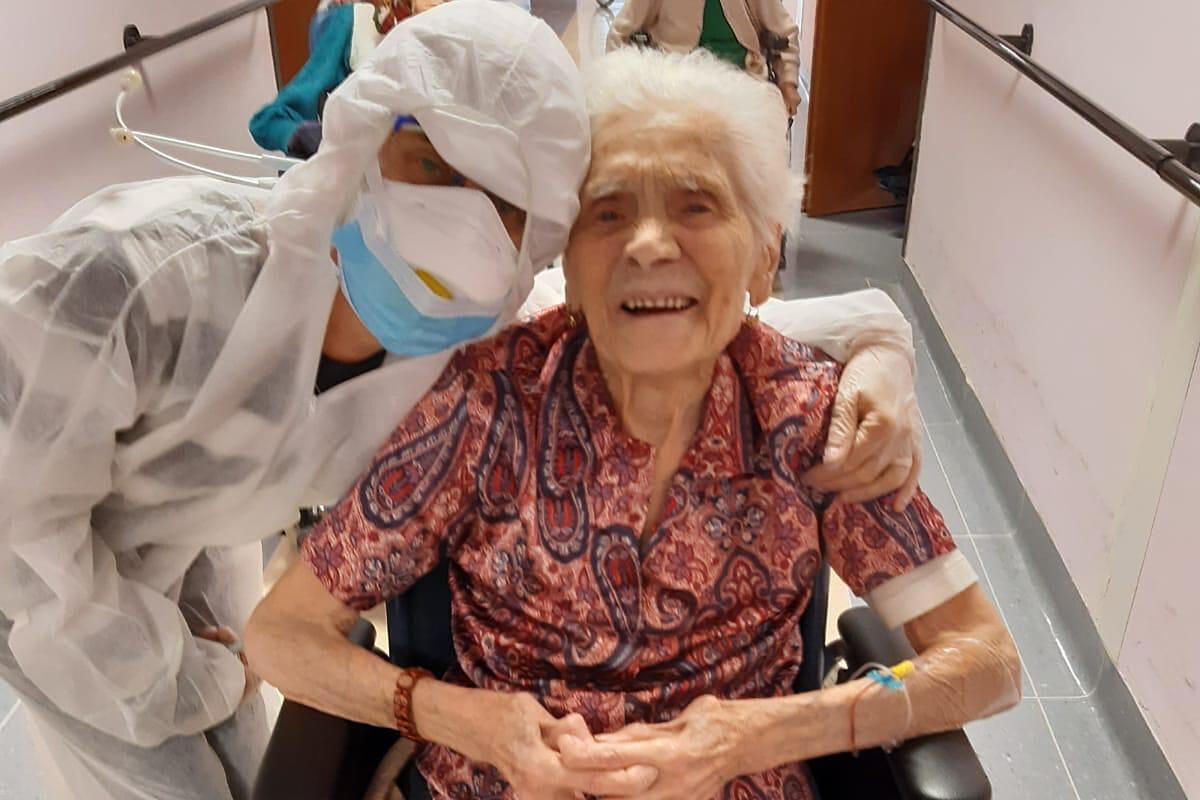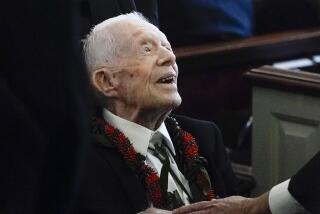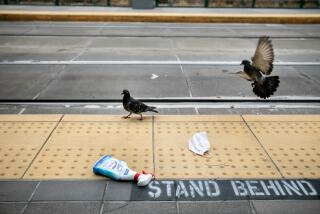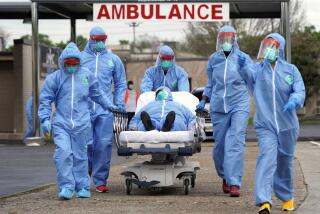Venerable but vulnerable: Centenarians hit hard by coronavirus

- Share via
BOSTON — Centenarians have always been a rare breed. Now they’re an endangered species.
The 100-plus crowd — those most venerable of human beings — is succumbing rapidly and heartbreakingly to the coronavirus pandemic. Entire limbs are being lopped off family trees, and their wisdom and lore are dying with them.
“We’ve been really upset,” said Thomas Perls, a professor of medicine and geriatrics at Boston University who directs the New England Centenarian Study. “We’re seeing a higher rate of people passing away ... cutting these incredible lives shorter.
“For families, they’re the pride and joy, the anchor, the link to the family’s history. They’re a huge big deal,” he said. “If you have a healthy centenarian who’s cognitively intact with no signs of Alzheimer’s, to me they’re practically immortal. COVID has interfered with that formula for sure.”
Reliable estimates of the numbers of centenarians who have perished in the pandemic are elusive, primarily because most state and government health agencies tracking deaths lump them into an 85-and-older demographic. That age bracket has seen more deaths than any other, according to data from Johns Hopkins University, the COVID-19 Tracking Project and the U.S. Centers for Disease Control and Prevention.
But anecdotal evidence, including newspaper and online death notices, suggests that COVID-19 is exacting a grim toll among the estimated 70,000 centenarians in the U.S. In tiny Rhode Island alone, at least eight people aged 100 or older have died, public health officials say.
Carrie Hoza of Northfield, Ill., lost her 101-year-old grandmother, Norma Bratschi Hoza, to COVID-19 this month.
Born in 1919 to a mother who survived the deadly 1918 influenza pandemic, Bratschi Hoza married her childhood sweetheart, went to business school and helped found the family’s plumbing business. When three neighborhood boys close in age to her own three sons were orphaned, she took them in and raised them as her own.
“She lived a beautiful life, with kindness and goodness in her heart,” said Hoza, 46. “She always believed that hatred was toxic and forgiveness was the best way to live. She was an absolute gem.”
Remarkably, some centenarians have recovered from COVID-19. Against all odds, 103-year-old Ada Zanusso battled back after being hospitalized in the northern Italian town of Lessona, crediting “courage and strength, faith” for her rebound.
You don’t become a century old without some inherent toughness and genetic good fortune. An otherwise healthy 100-something, experts say, may be more likely to recover than someone who’s 60 and obese with underlying health issues.
But many of the very oldest of us are faring poorly in the pandemic. People who survived world wars, polio, the Great Depression and the Holocaust aren’t beating this.
“They’re people who are rock-solid citizens,” said Neenah Ellis, a former National Public Radio producer in Yellow Springs, Ohio, who interviewed many for her bestselling book, “If I Live to Be 100: Lessons from the Centenarians.”
“These are people who lived on the same block for 80 years, who taught school for 60 years, who never missed a church service,” she said. “We’re all enriched by knowing these people.”
Having cheated death for so long, they draw us in mysterious, almost totemic ways.
We picture ourselves in their fedoras and flapper dresses. They are, or were, slightly more turbocharged and bulletproof versions of us. Until now.
There was Quentin Wiest, of Paramus, NJ., felled by COVID-19 at the age of 107 — an accomplished engineer who played golf long after he turned 100. “When it came to life, he left nothing on the table,” his son told Gov. Phil Murphy, who paid tribute to Wiest at a coronavirus briefing.
And Margaret Ennis, of Canton, Mass., who died at 100 wearing her signature pearls, a prized book of Irish prayers nearby. Asked her secret to longevity, she was fond of saying: “Read a book every day and get your hair and nails done every week.”
For the younger among us left behind, what to make of these losses? It’s complicated.
On the one hand, these are people who lived long and full lives and were going to die sooner rather than later even without the pandemic.
Yet on the other hand, they’re our eldest elders, our patriarchs and matriarchs, our families’ root stock — and, in many instances, our connections to foreign lands and forgotten ancestors. In a fragmented era, they are our continuity.
Perls, the human longevity expert, believes the planet is diminished with every centenarian lost: “We truly regard each one of them as a living historical treasure.”
More to Read
Sign up for Essential California
The most important California stories and recommendations in your inbox every morning.
You may occasionally receive promotional content from the Los Angeles Times.










